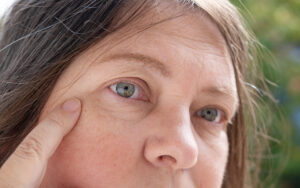Reasons You May Not Be Eligible For Lasik

Wearing eyeglasses or contacts every day can easily become tiring. People with sight problems must remember to carry their eyewear daily and be careful not to lose or damage them. If not, LASIK is a more permanent alternative.
LASIK is an abbreviation for laser in-situ keratomileusis, a type of laser refractive eye surgery. The FDA describes it as a procedure meant to reduce an individual’s dependency on glasses or contact lenses by permanently changing the shape of the cornea (the clear front part of the eye) using a laser.
Despite the numerous benefits of the procedure, some factors make one ineligible for LASIK. The FDA has published a list of LASIK contraindications, warnings, and precautions. Learn more below.
Factors Affecting Eligibility For Lasik
Poor ocular health
Eye health is the most common reason patients may not be eligible for LASIK surgery.
People with severe dry eyes are not eligible for LASIK. Even those with moderate or mild dry eye symptoms are encouraged to avoid the surgery.
It is because the surgery has the probability of worsening the condition. It also increases the risks of eye infection and/or scarring. The FDA adds that being unable to tolerate contact lenses may also indicate that you should avoid LASIK.
Patients with allergies or a tendency to consistently rub their eyes are also cautioned against LASIK. Eye rubbing may increase the risks of developing complications after surgery, while allergy medications may cause dry eyes.
Scarring from previous eye surgery or injury may affect LASIK outcomes. Surgeons must examine the eyes to determine if the past scarring will be an issue.
Poor body health
Another common reason patients may not be eligible for LASIK is general body health.
People with active autoimmune or connective tissue diseases such as rheumatoid arthritis and lupus are restricted from any type of eye laser surgery. These conditions may cause corneal melting increasing the risk of severe cornea damage or vision loss.
Patients with uncontrolled glaucoma may have increased eye pressure leading to greater risks of vision loss.
Individuals with uncontrolled diabetes may have fluctuating eyeglass prescriptions preventing the doctors from accurately determining the extent of surgery required. In addition, diabetes affects wound healing.
Patients with weakened immunity due to illnesses (such as HIV/AIDS) or medications (such as steroids and cancer treatment) are also advised against LASIK, depending on their health.
Active or past eye infection or inflammation
Individuals with conditions such as keratitis, iritis, or uveitis are restricted from having LASIK as they may worsen the condition and cause permanent eye damage or vision loss in the worst-case scenario.
Recent infections or problems resulting from past infections, such as herpes eye infection in the last year, may have caused corneal damage. Since LASIK involves cutting and reshaping the cornea, there is an increased risk of more damage.
Unstable vision
Vision stabilizes after 18 years of age, so the FDA limits it as the minimum age to be eligible for LASIK.
Vision is considered stable if it remains unchanged for at least one year (including no change in the eyeglasses prescription within a year). It is common for patients’ eyes to stabilize during their twenties, leading to caution against surgery before reaching this age.
Thin cornea
LASIK surgery requires the cornea to be thick enough to undergo reshaping without ectasia (abnormal bulging of the cornea) that affects vision. Ophthalmologists must determine if the cornea is thick enough for the surgery.
Those with a family history of eye diseases such as pellucid marginal degeneration, keratoconus, or other cornea thinning or bulging conditions are cautioned against LASIK. The undiagnosed or early-stage conditions could be accelerated by LASIK surgery.
Pregnancy or breastfeeding
Pregnancy and breastfeeding have been associated with temporary or permanent changes in vision. Hormones and fluid retention can lead to prescription changes or cause dry eyes affecting LASIK eligibility. Also, LASIK medications can negatively affect the unborn fetus.
Pregnant women must wait more than one year before considering LASIK surgery.
Pupil over-dilation in the dark or severe myopia
People with extreme nearsightedness (myopia) or large pupils may be at higher risk of developing complications such as glare and halos. Those with severe myopia also have less accurate corrections during LASIK.
Epithelial basement membrane dystrophy (EBMD)
EBMD is associated with repeated sharp eye pain caused by the corneal cells not sticking well together. It is associated with blurred vision, tearing, light sensitivity, and pain, with LASIK, increasing the risks of these symptoms.
Using prescription medications
Patients taking prescription medication that may interfere with the health or healing process of the eyes after surgery are cautioned against LASIK.
Some drugs, such as isotretinoin used for acne treatment, may cause dry eye and abnormal wound healing. Patients should inform the eye surgeon of all medications to determine LASIK eligibility.
Active participation in contact sports
Individuals actively participating in activities that may wrinkle, move, or break cornea are advised to avoid LASIK. The FDA states that people participating in activities such as contact sports are more at risk of damaging their vision even years after surgery if the LASIK flap dislocates or is lost.
Career Requirements
Certain careers, such as law enforcement or the military, require excellent vision. LASIK may reduce vision during poor light conditions when contrast is low or when there is glare from a bright light making it difficult to see well during rainy, snowy, or foggy conditions. People in such situations should regularly seek their employers’ recommendations before surgery.
Final Thoughts
LASIK eye surgery corrects eyesight to reduce dependency on glasses or contact lenses. However, certain medical conditions, past complications, family history, present whole-body health, and present eye health can make you ineligible for LASIK.
Patients are encouraged to consult their ophthalmologists to determine their eligibility for LASIK. Our specialists can help you determine if any of the above restrictions apply.




